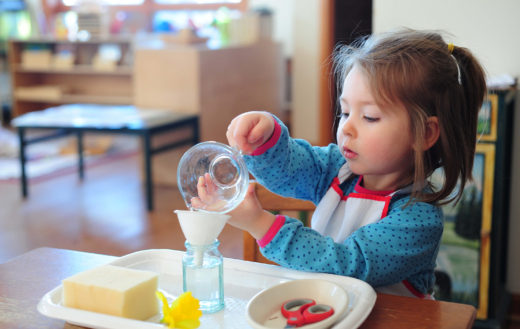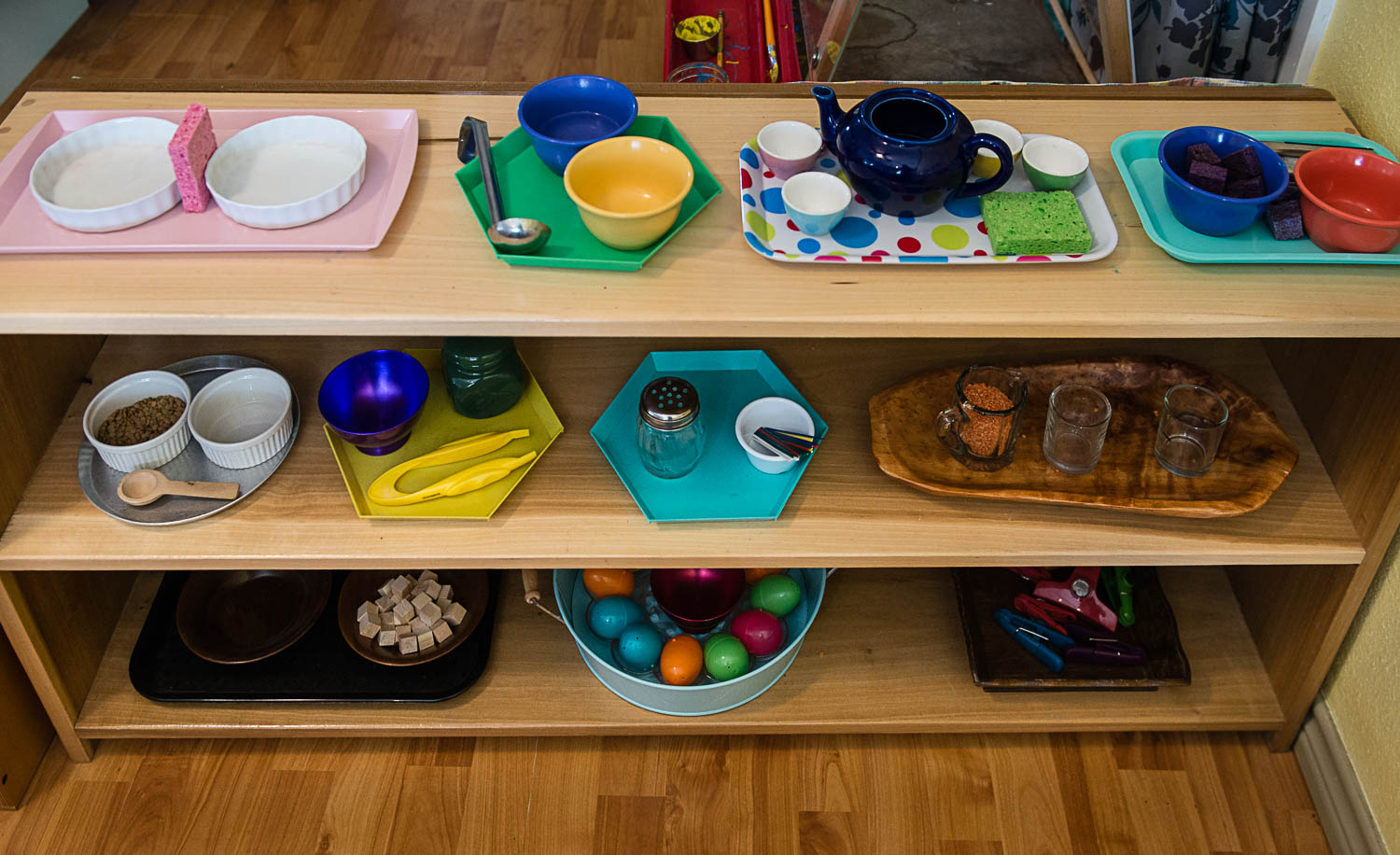Practical Life in Montessori If education is always to be conceived along the same antiquated lines of a mere transmission of knowledge, there is little to be hoped from it in the bettering of man’s future. For what is the use of transmitting knowledge if the individual`s total development lags behind?
What is Practical Life in Montessori EPL ?
Exercise of practical life (EPL)are those simple daily actions normally performed by adults in maintaining and restoring proper living conditions.
There is no limit to the execution of practical life in Montessori exercises house of children. We may practically include anything that we do in our day to day life. By doing EPL children can perform complicated every day tasks. We follow a systematic approach in which each child is provided with opportunities to go through a series of simpler to complex activities. This way the child gradually steps up the complexity level of exercises, and becomes able to perform complicated tasks.
Religious teachings and practices can also be incorporated into EPL like how to pray, greet others, drink water , start a task , knock at the door , etc.
1.2 Why should children do EPL ?
Children practical life in Montessori should be exposed to a variety of EPL during early years in the proposed and home environments. We will discuss why children should do EPL under the following ten heading.
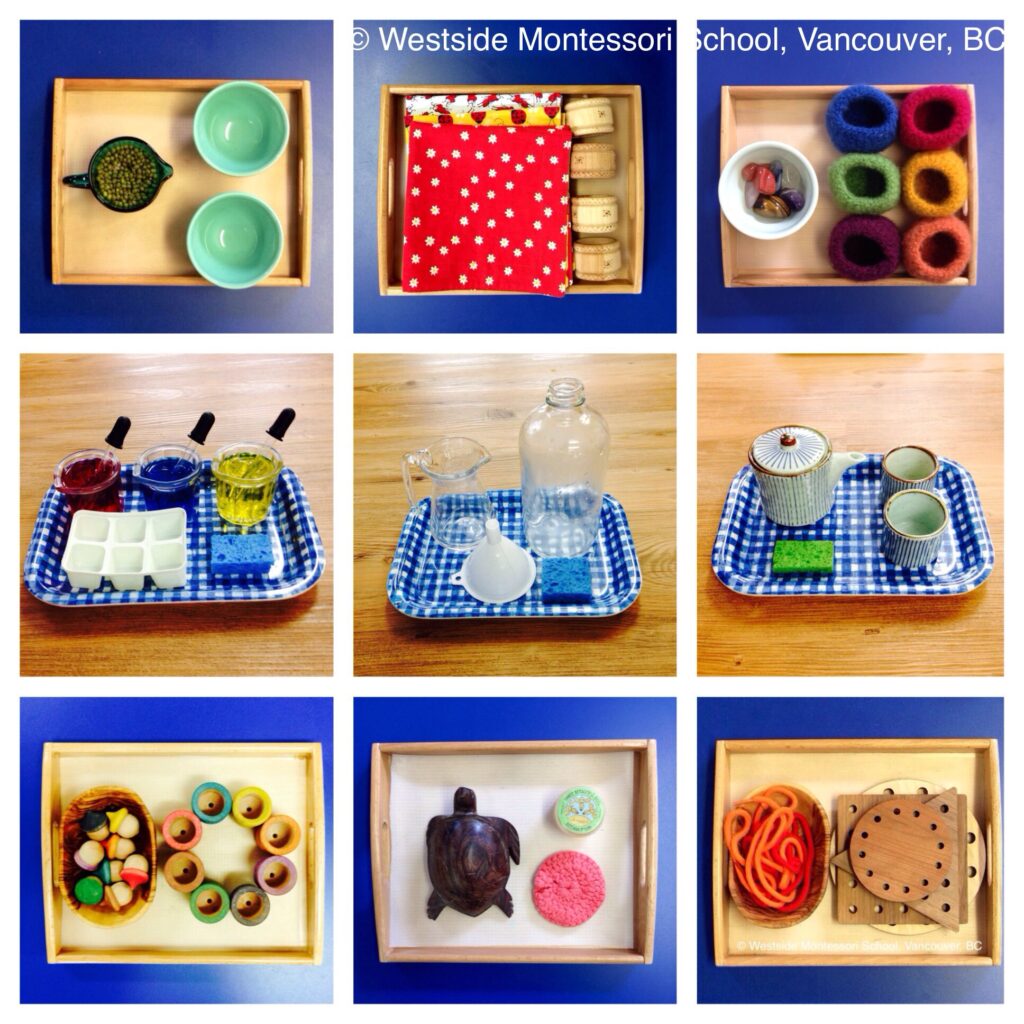
1.On the Path to Independence:
By far it established that between birth and six the child is developing . His mental patterns are getting fixed, and the personality is developing which is almost determined by the age of six to seven years. To be dependent in everyday life is also a personality trait which gets determined during early childhood only.
Most parents, adults in the family and teachers are unaware of this fact, so they love to do things for the children’s. For instance, practical life in Montessori in our society the root cause of male dependence is the superfluous help offered to them in early childhood . When the right time is there …mothers and other adults in the family do almost everything for the children . Things are done for them rather than helping themselves.
We fail to understand that all efforts to grow are actually efforts to be independent. During the course of time dependence on others, for everyday tasks, becomes a personality trait of the child. Later on, it becomes almost impossible to undo this. In almost every family we have males ordering mothers, sisters , wives and daughters to do things for them.
brings me food
bring me water
take the dishes away
Where are my shoes ?
polish them
iron my cloth ,etc,
A wife expressed her fear saying. He calls me for water even when i am upstairs …. I wonder if he would die of this if I am not there .The normal male reactions can be harsh, if their wishes are not fulfilled. Thus , by doing things for children in their childhood we create not just one of them but many forthcoming relationships in their lives.
Let’s discuss females in this perspective. When the right time is there, the mothers, and other members of the family keep on doing things for them. However, as they grow ulcer and the right time to internalize particle life activities is gone, the pressure from the family to do household things begins to mount up. The pressure is much more than that when they get married.
The ultimate results is that they have to do all this unwillingly and unhappy due to pressure and not because of their will. Pressure creates Resistance, is a law of physics and is applicable to human situations as well.
One cannot do a thing happily unless the desire to do it springs from within. The ultimate causes can be frustration, unhappiness, tension among the family members and the blame …;I have to do more and she has to o less. The list can be stretched; however , we stop here and get back to the topics.
The point is that if practical life activities are started at the right time and we help children do things themselves rather than doing things for them. Independence has become a lifelong personality trait. They don’t just continue doing everyday things for themselves and others but also do it happily.
2.Cultivating a Passion for Work:
EPL are also meant to give the children an understanding of the environment around them and how it works. Through EPL the love of work also develops in the child, and he enjoys the activities involved in keeping himself and the environment worthwhile for living. All this work, actually, gives the child high self high esteem and a feeling of being important.
3.For happiness, Self Satisfaction & Self Respect:
When work habits are formed it must be shown to the child that he has to be helpful for all … not just for himself. The adult, who has to choose a profession, chooses the kind work he enjoys doing. This work helps him earn self esteem, and he enjoys contributing to the society as a good citizen. Happiness and self satisfaction can be acquired only if all kinds of work are done in the proper way. Similarly, young children should also b e allowed to choose work that they will enjoy doing.
All activities practical life in Montessori which are taught must be taken very seriously . During 0-3 years the child loves to do work at home and and learn .Since this age proceeds quickly, if this time is used properly and all the activities are taught seriously , the child in his later life would be well equipped to maintain the house , which in the modern age require a lot of dexterity.
All this work practical life in Montessori requires high intelligence and skill . When we teach these activities to a child we should be generous in our support and praise to the child , because at this stage he works hard, ardently and passionately. We should show our interest and delight to make him feel important .Such things like “it is so nice that you are helping me today “or “oh! Look at that neat and tidy bed…. Well done !`
The children who come to a Montessori school are those who are actually being prepared for maturity.it is very essential to provide opportunities for learning which aim on acquiring the basic skill to prepare each child for future responsibility .The child naturally has an urge to acquire these skills. A young child has had the opportunity to help his mother in the house to learn all these skills from her.
He develops practical life in Montessori in intelligence and has a fulfilled feeling of satisfaction because he can see what he is involved in an important work which is done by adults and is of value. The child gets the contentment and knowledge of the fact that is doing something worthwhile which is leading him to independence. If we stop the child from working it is stopping him from developing .
Words like ` Go away and party “means ” you are worthless and not suitable for anything . Take a toy and purposeful things can be given to you, the real things are only for me !`
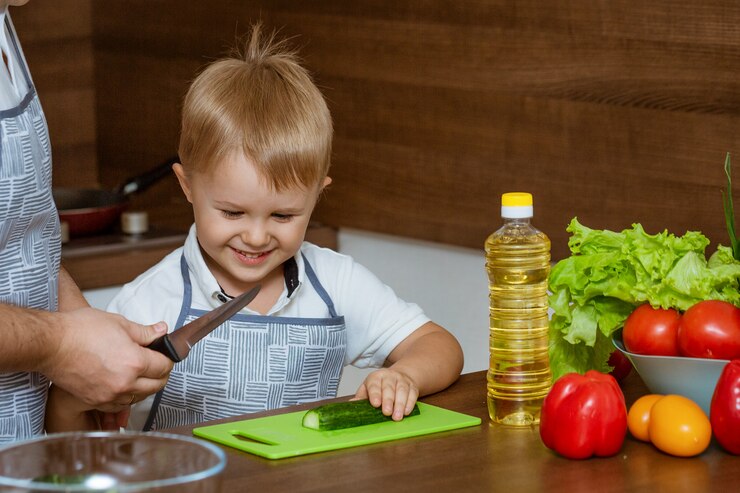
4. For Making World a Better Organized and Tidier Place :
Many of us are far from practicing putting things back at their proper places. One essential element of EPL is winding up . In Montessori schools we follow the principle….
There is a place for everything, and everything has a place
A particular material will always be found in a Montessori classroom. By ignoring the practice of this important principle in the right age, we complicate the environment and our lives. For example;
We leave used utensils on the table for someone else to pick ,
Instead of spreading the towel rod we throw it on the back of the chair.
We bring our laundry, and throw the pile on the bed or on the sofa and leave it there.
When we need a tool it just disappears because we did not place it back at its place last time we used it .
Internalization of this rule is possible if we practice putting things away at the right place at home or at the right age, and clean up any kind of mess that we have made while working.
Shelves and cupboards that are child sized must be made available to the child at school as well as home so that the child becomes independent. If, however, the child does not feel like putting his things away or does not understand how it is to be done, the adults should help him do so by saying, “I can help you today to put away the things” or ” Who would help Noor put away these things”, etc `.
In this manner practical life in Montessori the children also learn to help each other and the child who first receives the help would later be the first one to help others.
While giving an occupation to child, only those which are designed well, made and worthwhile should be given. A clutter of things should not be kept in the house because there are a very few people who can keep a large number of possessions in an organized way.
Neither should there be too many things from which the child is to choose. It is also unwise to give child huge quantities of cheap trashy toys, which hinder his intellectual development and do not support learning .
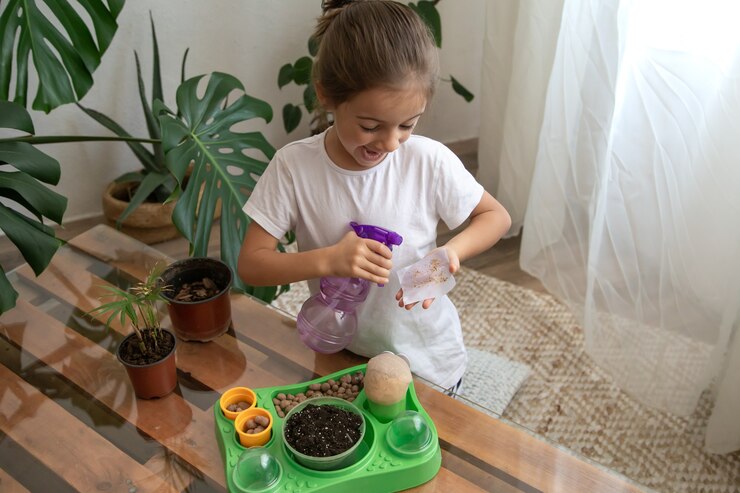
5.For Learning to Give and Take Help Gracefully:
Many of us do not know how to ask for or offer help gracefully. practical life in Montessori EPL are extremely helpful from younger and older children willing and with pleasure at school or at home. The basic trend of `Go ` and clean up your `should be replaced with ` Lets us all clean the guest room` today. The kitchen tomorrow and your room the next day .
This way the child learns to do all kinds of work properly. This practice also helps to form good work habits among children, help each delightfully and later on when they grow up they offer help in household jobs ` knowledge that all have to participate to run the home which belongs to the whole family.`
6.For Passing on Good Work Habits to the Next Generations :
When the child is young he learns enormously by imitating adults . If at this stage the adults complain about their work, the child will also avoid all kinds of work when he grows up. This transmission of bad attitude can only be stopped if today grows up into excellent models with excellent work habits for the next generations to imitate.
7.For Perfection of Movement :
Nature wants the child to be constantly on the move. This needs for movement, which is irresistible in childhood, apparently diminishes as we grow older. Movement helps to mean subjecting motor impulses to the will. Thus, the more developed a child is, the obedient are his instruments of motion to his will.
Rolling up a carpet, polishing up the shoes, washing the basin or the floor, setting the table, opening and closing boxes, door and window , arranging a room, putting chairs in order, drawing curtains, caring furniture, etc . are the exercise that engage the whole body, work out muscles and perfect movement.
Through good work habits the practical life in Montessori child learn how to move his hand and arms, and to strengthen his muscles more than he does through ordinary gymnastic exercise. Nevertheless, the exercise of practical life cannot be regarded as a simple kind of gymnastics ;the work is refreshing and not tiring because of the interest which the child takes in all his movements.

It is a natural exercise , since man ought to have some object in view when he moves. The muscles should always serve the intellect and thus preserve their functional unity with the human personality .
practical life in Montessori the child also learns to move with grace and avoids superfluous movement. The more control a child develops over his movements , the more freedom can enjoy, as the adults would not be hindering his movement because of the fear of damage to the environment himself.
8.For Normalization of the Child:
As described in the 1(chapter – sensitive periods).every child undergoes sensitive periods during 0=7 years of age during which he goes through a certain strong urge to have experience appropriate for development . If however, these urges are suppressed by the environment or the adults, which means the child does not get opportunities to have appropriate experiences, he tends to get deviated .
practical life in Montessori Sensitive periods for EPL also starts and ends during this age only, and the child to do necessary activities. We all have seen the amount of joy children take by engaging themselves in everyday activities, like washing , cleaning ,cooking, cutting etc. Fulfillment of inner urge leads the child to normality which is the spiritual goal of EPL.
